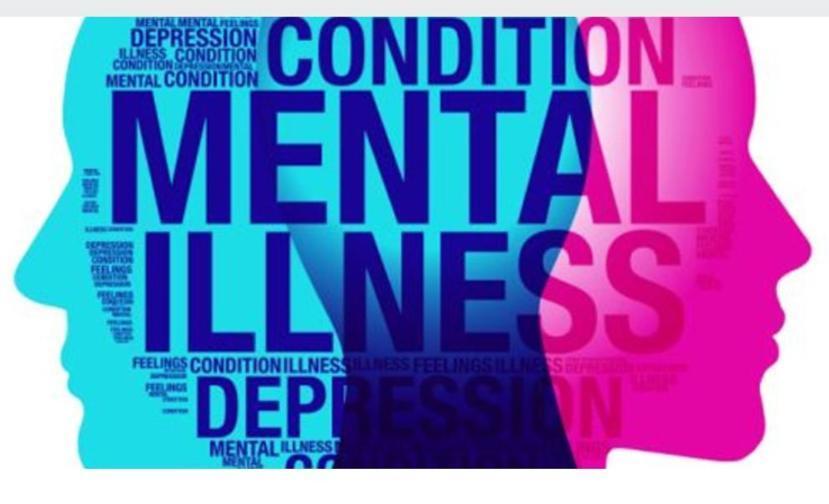The Mental Health Risks of Untreated Sleep Apnea: Why Testing Is Crucial

Seizar Kaelan is an acupuncturist practicing in Bandung, Jabar. Dr. Kaelan evaluates and treats patients based on the concepts of oriental medicine. Acupuncturists complete their evaluations by getting a patient history and looking at and touching the body. Then, they place very fine acupuncture needles into specific... more
I used to think my groggy mornings and short temper were just signs of a demanding job. I’d wake up feeling like I hadn’t slept, lose my train of thought mid-sentence, and feel a quiet panic simmering under the surface. When my spouse mentioned my snoring—loud, with unsettling pauses—I dismissed it as a minor flaw. But those were symptoms of sleep apnea, a condition that was silently sabotaging my mental health. Untreated sleep apnea can impair cognition, disrupt mood, and increase risks of anxiety and depression. Here’s why testing is a vital step to protect your mind and restore your vitality.
How Sleep Apnea Harms Your Brain
Cognitive Struggles from Disrupted Sleep
Obstructive sleep apnea (OSA) causes breathing to halt multiple times during sleep, depriving the brain of oxygen. These interruptions fragment rest, leaving you mentally foggy even if you don’t fully wake. I found myself misplacing keys, forgetting meetings, and struggling to focus. A 2016 study in Sleep Medicine links untreated OSA to cognitive impairments, including memory issues and reduced attention, sometimes mimicking early cognitive decline. Without testing, you might not realize what’s clouding your mind.
Emotional Instability
Sleep apnea doesn’t just dull your brain—it throws your emotions off balance. I’d get frustrated over small things, like a slow Wi-Fi connection, then feel guilty for overreacting. A 2018 Chest study shows untreated sleep apnea heightens emotional volatility, increasing irritability and low moods. The exhaustion from poor sleep amplifies stress, creating a loop where bad nights and bad days feed each other. My patience was wearing thin, and I didn’t know why.
Anxiety and Depression Risks
The mental health consequences are serious. A 2020 Journal of Clinical Sleep Medicine study found that untreated OSA significantly raises the risk of anxiety and depression. Oxygen deprivation and disrupted sleep strain the brain’s emotional regulation, making you more susceptible. My nagging sense of unease started to lift only when I addressed my sleep apnea.
Spotting the Warning Signs
Symptoms You Can’t Ignore
Sleep apnea often hides behind symptoms we chalk up to stress or aging. I woke up with a dry mouth, splitting headaches, and a fatigue that clung to me all day. My irritability was relentless, and my spouse’s comments about my snoring and breathing pauses were hard to dismiss. Other signs include gasping at night or feeling unrested after hours in bed. These are signals of a condition undermining your mental well-being.
Why Self-Fixes Aren’t Enough
I tried cutting back on late-night snacks and using a meditation app, hoping to shake my tiredness. But sleep apnea’s impact is too complex for quick fixes. Only professional testing can uncover the true cause of your symptoms.
The Role of Sleep Studies
What Happens During Testing
A sleep study, or polysomnography, monitors your breathing, heart rate, brain activity, and oxygen levels while you sleep. I was nervous about sleeping in a lab, but the process was simple, with sensors placed gently on my skin. Home sleep tests are available for some, too. My results showed OSA, revealing frequent breathing stops that explained my mental haze. The clarity of a diagnosis felt like a weight lifted.
Testing Opens Doors to Relief
A sleep study doesn’t just confirm a problem—it guides you to solutions like CPAP therapy or lifestyle changes. I connected with a sleep doctor at Sleep Solution Centers, who used cutting-edge testing to diagnose my condition and recommend a plan. After starting treatment, my memory improved, and the irritability that once defined my mornings faded. Testing was the key to turning my health around.
Small Steps to Better Nights
While waiting for a test, these habits can help:
1. Optimize Your Bedroom
I added a humidifier and kept my room dark. A restful environment soothes the mind.
2. Create a Bedtime Routine
I swapped scrolling for a few pages of a novel. It helped my brain ease into sleep.
3. Avoid Heavy Evening Meals
Late dinners disrupted my rest, so I shifted to lighter meals earlier in the evening.
Act to Save Your Mental Health
Untreated sleep apnea doesn’t just steal sleep—it erodes your mental clarity, mood, and resilience. If you’re battling fatigue, irritability, or loud snoring, don’t wait. A sleep test can reveal what’s disrupting your nights and set you on the path to sharper, brighter days. Take charge of your health and rediscover your energy.








